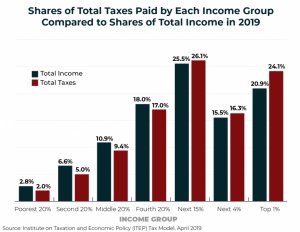California wants Big Tech to pay for news. Google is fighting back.
For years, governments around the world have waged a bitter fight with Google and Meta over whether the Big Tech giants should pay for the news stories and videos that show up in search results and on social media. Now that fight has come to their home turf — the United States. California politicians are advancing a bill that would force Google and Meta — which owns Facebook and Instagram — to pay news publishers each time they display pieces of their articles or show links to them in search results or on social media. The companies are lobbying furiously to block it, saying the law would enact a “link tax” and upend the free flow of information online. Now, Google is taking its resistance a step further, by completely blocking news links for California-based news organizations from showing up in search results for some Californians. Google won’t say how many people it is blocking news for, but called the move a “short-term test” in a blog post announcing it earlier this month. Politicians and news publishers have shot back. “This is a dangerous threat by Google” that is “clearly an abuse of power and demonstrates extraordinary hubris,” said Mike McGuire, a Democratic state senator in California who is sponsoring the bill. “These actions by Google show why a bill is necessary. It’s seriously concerning that one company can essentially cut off the free flow of information to Californians,” said Brittney Barsotti, general counsel for the California News Publishers Association.
More From The Washington Post (subscription required):







